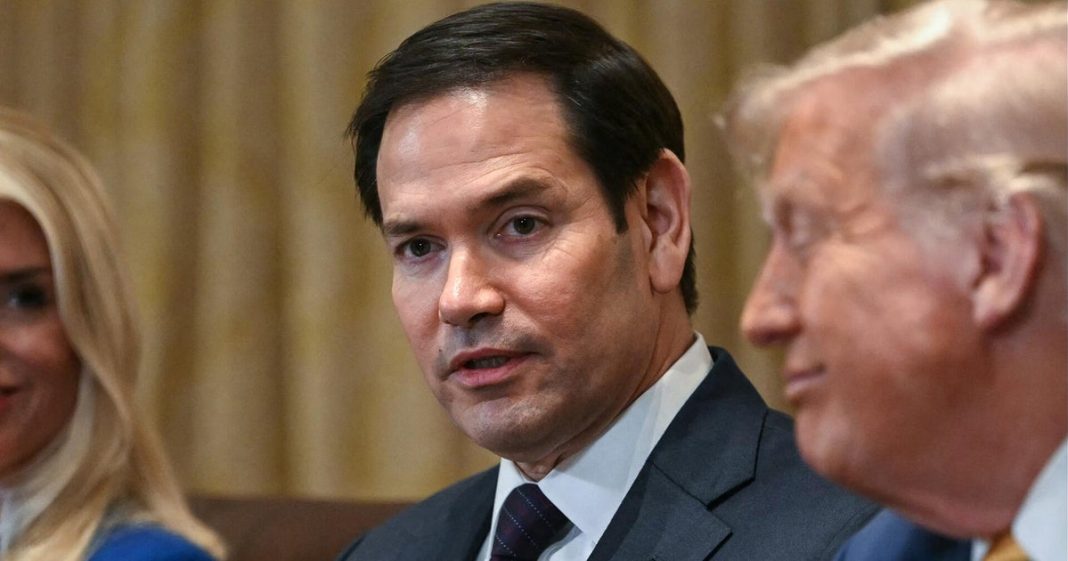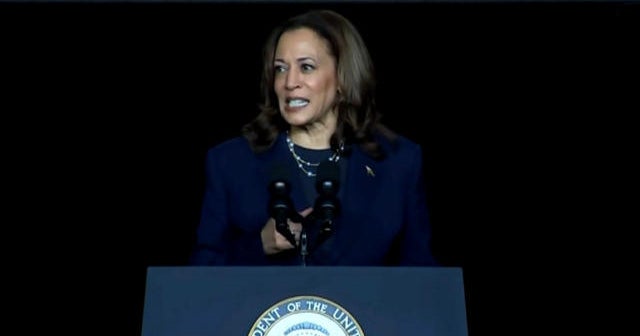Washington — The State Department is set to roll out a pilot program that may require foreign nationals from certain countries seeking business or tourism visas to post a bond of up to $15,000, according to a public notice set to be published Tuesday.
The notice lays out the details of a 12-month “visa bond pilot program” that would allow consular officers to require visa bonds. Under the program, the bonds may be required for travelers from countries that the State Department says have high rates of visa overstays, or where screening and vetting information is considered deficient, according to the document.
The notice does not specify the countries covered by the pilot program, but said the State Department will announce the list at least 15 days before it takes effect. The agency will also provide an explanation of why the bonds are required, according to the listing, which will be published in the Federal Register on Tuesday.
The program will take effect 15 days after the notice is officially published and will run through August 2026, the document states.
The program comes in response to an executive order issued by President Trump on the first day of his second term that sought to stem illegal immigration into the U.S., a major focus of the president’s policy agenda. The measure directed the treasury secretary, along with the secretaries of state and homeland security, to take action to implement a visa bond program.
As part of his immigration agenda, the president has sought to roll back humanitarian programs for migrants from certain countries, and signed a proclamation in June banning foreign nationals from a dozen countries from traveling to the U.S. The Trump administration has also targeted immigrants on student visas and taken steps to tighten the rules for visa applicants.
A new tax-and-spending bill signed by Mr. Trump last month also subjects many travelers to the U.S. to a $250 “visa integrity fee.”
The State Department described the pilot program as a “tool of diplomacy” and said it will help inform future decisions regarding the potential use of visa bonds “to address the national security and foreign policy priorities” raised in Mr. Trump’s executive order.
“The Pilot Program is further designed to serve as a diplomatic tool to encourage foreign governments to take all appropriate actions to ensure robust screening and vetting for all citizens in matters of identity verification and public safety, to create safeguards in [Citizenship by Investment] programs that provide citizenship without any residency in the country, and to encourage specified countries with visa overstays to ensure their nationals timely depart the United States after making temporary visits,” according to the notice.
Who may be included in the visa bond pilot program?
The State Department did not say which countries with high overstay rates would trigger the visa bond requirement. But an August 2024 report from the Department of Homeland Security found that in fiscal year 2023, there were more than 300,000 foreign nationals admitted for business or pleasure who were still in the U.S. after their authorized stay ended.
The pilot program will focus on countries that have high visa overstay rates among those allowed into the U.S. for business or pleasure — through B-1 or B-2 visas, according to the notice. A B-1 visa is for those temporarily traveling to the U.S. for business activities. A B-2 visa is for foreign nationals who want to come to the U.S. temporarily for tourism or pleasure.
Travelers entering the U.S. under the Visa Waiver Program will not have to post a bond, according to the State Department’s notice. That program allows residents of more than 40 countries to enter the U.S. for fewer than 90 days without a visa.
While the countries subject to the program will be announced in the future, the list may also be modified on a rolling basis, the State Department said. The countries with the highest overstay rates for people with business and tourism visas in fiscal year 2023 were Chad, Laos, Haiti and Congo, according to the Department of Homeland Security’s report.
Only foreign nationals who are applying for B-1 or B-2 nonimmigrant visas, and who are from the countries identified by the State Department, may be required to post a bond of $5,000, $10,000 or $15,000 as a condition of receiving a visa. The bond can be canceled if the person meets certain criteria, including leaving the U.S. by the date their authorization expires, according to the terms of the program detailed in the notice.
The new requirement for certain foreign nationals seeking to come to the U.S. for business or tourism could have negative consequences for cities that rely on travelers from abroad. A June report from the Las Vegas Convention and Visitors Authority found that Sin City experienced an 11% drop in visitation year-over-year, hosting nearly 3.5 million visitors in June 2024 and nearly 3.1 million this June.
A spokesperson for the U.S. Travel Association said the pilot program appears to effect roughly 2,000 applicants, most likely from a few countries with low travel volume to the U.S. But the group is more concerned with the $250 “Visa Integrity Fee” included in the tax-and-spending plan, the spokesperson said.
“If this fee is implemented, the U.S. will have one of, if not the highest, visitor visa fees in the world,” the spokesperson said. “If we are to maintain a competitive position in the global travel market, it’s critical that U.S. visa policy reflects both national security priorities and the significant economic value of international visitation.”
Mary Cunningham and
contributed to this report.




